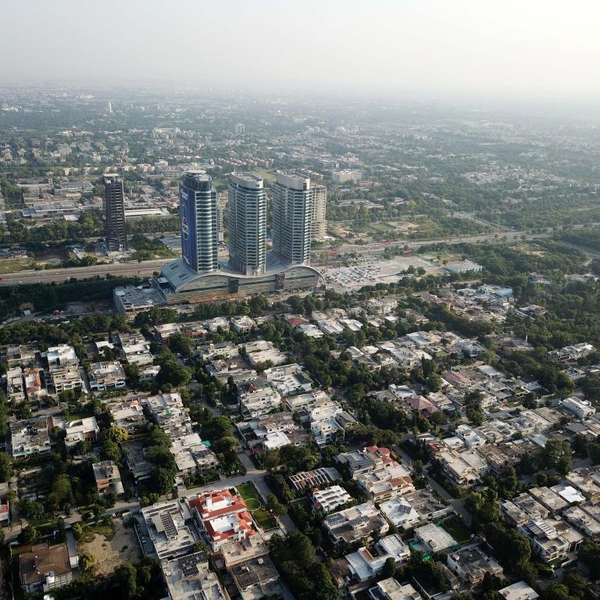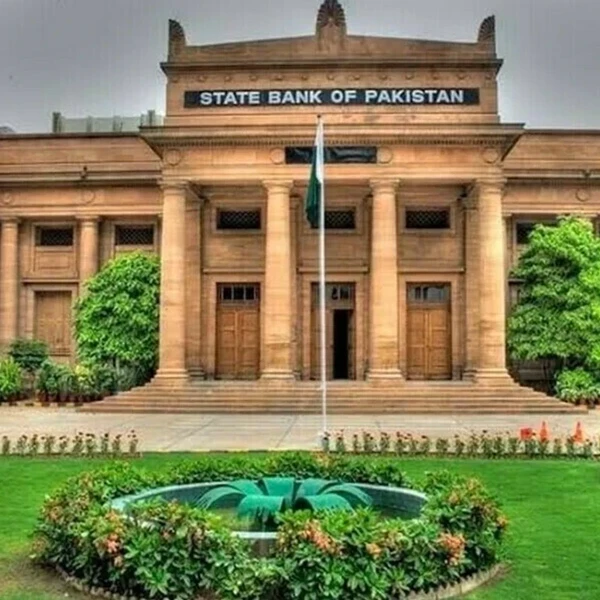Several Pakistani banks 'safe' from additional taxation after meeting minimum ADR requirement
A report from Topline Securities says the government may consider revising how ADR is calculated to generate tax

Haris Zamir
Business Editor
Experience of almost 33 years where started the journey of financial journalism from Business Recorder in 1992. From 2006 onwards attached with Television Media worked at Sun Tv, Dawn Tv, Geo Tv and Dunya Tv. During the period also worked as a stringer for Bloomberg for seven years and Dow Jones for five years. Also wrote articles for several highly acclaimed periodicals like the Newsline, Pakistan Gulf Economist and Money Matters (The News publications)

Several Pakistani banks have likely comfortably met the advance-to-deposit Ratio (ADR) ceiling earmarked by the Pakistani government for December 31, thereby avoiding additional taxation and diminishing the government's hopes of collecting taxes on earnings through government securities.
Eighteen banks are listed on the Pakistan Stock Exchange, of which nearly 10-11 banks have crossed the 50% ADR ceiling while 4-5 are making efforts to cross 40% and 50% ADR before the deadline, banking sector sources revealed to Nukta.
Banks with ADR in the range of 40-50% will have to pay an additional tax of 10%. If the ADR is below 40%, they will have to pay an additional 16% tax on income from government securities.
The banking sector sources said that as of November 15, the average ADR has been around 47% compared with 40% a year ago.
Banking sector's efforts
However, within a month, banks have introduced several plans to promote lending amongst individuals and the corporate sector. The numbers recently revealed that auto financing showed a slight upward tick amounting to PKR 236 billion as of October 31 compared to PKR 227 billion a month ago, according to data from State Bank of Pakistan.
Moreover, credit to the private sector jumped to almost PKR 997 billion as of November 22 compared to PKR 880 billion, an increase of PKR 117 billion within a week.
“The government has probably sensed that banks might achieve the coveted level of 50% ADR limit by December 31, which is why it moved to find [other] ways and means to impose tax on banks' earnings incurred through investing in government securities," said an analyst.
Committee formed to address issue
Last week, Prime Minister Shahbaz Sharif constituted a committee to resolve the ADR issue. The committee, led by Deputy Prime Minister Ishaq Dar includes Minister for Finance and Revenue Muhammad Aurangzeb, Minister for Law and Justice Azam Nazeer Tarrar, Minister of State for Finance and Revenue Ali Pervaiz, Attorney General of Pakistan Mansoor Awan, the finance secretary, chairman of the Federal Board of Revenue and the central bank governor among others.
The Terms of Reference of the committee are:
1. To review the existing legal framework of fiscal measures related to the banking sector's ADR.
2. To deliberate on alternate fiscal schemes to tax bank profits accrued from investment in government securities.
3. To engage with the banking sector, the FBR would develop a consensus on a way forward, if possible.
4. To firm up recommendations for an optimum solution, ensuring realization of government revenues by December 31.
5. To suggest non-fiscal regulatory measures for increasing advances to the private sector.
The committee was required to submit its report within one week. It was also tasked with suggesting legal amendments and regulatory changes for legislation, if needed.
According to a report of Topline Securities, in the nine months of 2024, listed banks' pre-tax profits amounted to PKR 913 billion, with full-year profits expected to be around PKR 1,200 billion.
Approximately 80% or PKR 960 billion of this profit is derived from government securities. If ADR of all banks remain in the range of 40-50%, the government could collect an additional 10% tax, i.e., PKR 96bn.
Implications for banks
Any additional taxation measures by the government committee could negatively impact banks, according to Topline Securities. The brokerage highlighted several potential steps that the government could consider.
One possibility involves the State Bank of Pakistan revising the formula for calculating the ADR, a move similar to changes made in 2008. At that time, the central bank excluded certain advances and included all deposits in the calculation. Analysts at Topline noted that a similar adjustment could exclude lending to non-banking financial institutions, resulting in a lower ADR and potentially triggering higher tax payments for banks.
The committee may also shift the formula for additional taxes on low ADR levels from a "year-end calculation" based on December 31, 2024, to an "average for the year".
Other potential measures include raising the corporate tax rate for banks beyond the current 49% — which includes a 10% super tax — or imposing a direct tax or surcharge on income from government securities.
Despite these risks, Topline maintains a "Market Weight" rating on the banking sector, citing attractive valuations.
However, analysts cautioned that efforts to generate approximately PKR 100 billion in additional tax revenue from banks could reduce their profitability by 12% to 15%.
"We await for clarity on the exact measure suggested by the newly formed committee," the Topline Securities report said.










Comments
See what people are discussing